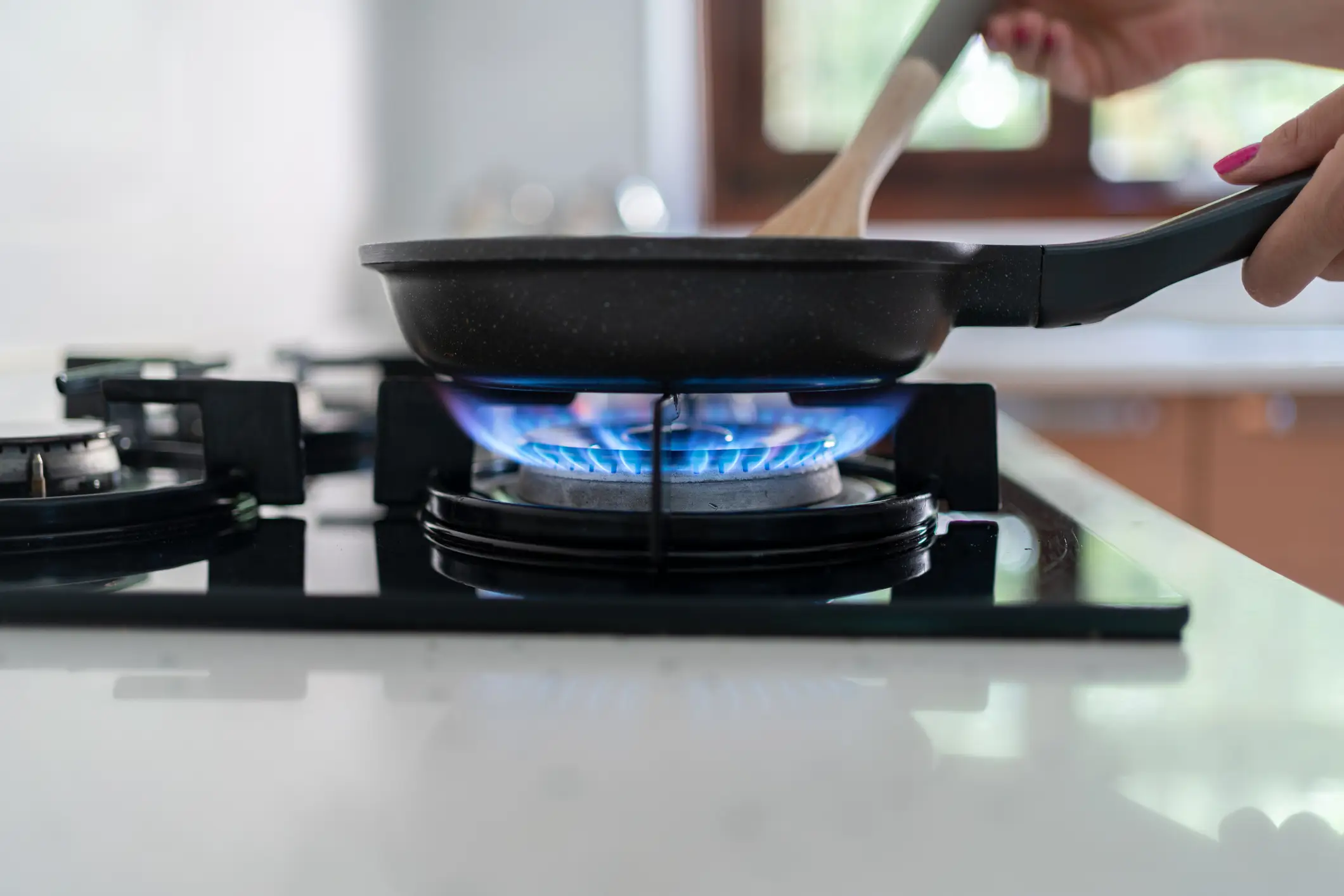
Warning: This article contains discussion of cancer which some readers may find distressing
A common household appliance that features in roughly two in five households in the US could be drastically exposing children to a carcinogen linked to cancer.
A new study by Stanford University students has found a terrifying connection between cooking on a gas stove and the deadly disease, with benzene being produced when methanol is burnt.
Benzene, which is a known carcinogen, has been linked to blood-related cancers like leukaemia, and is found in cigarette smoke, gasoline and paint strippers.
Advert
Now, researchers have discovered that the risk of developing cancer in the comfort of your own home is much greater for children - but only if precautionary steps aren't taken.

"The US population spends about 90 percent of its time indoors on average, and the share of time spent at home is growing with the increasing prevalence of work-from-home schedules," the authors of the paper, which is to be published in the forthcoming July issue of the Journal of Hazardous Materials, state.
"Prolonged exposure to poor indoor air quality can reduce productivity, health and well-being. Numerous sources of indoor air pollution are found in homes, with combustion-based cooking from gas and propane stoves being one of the largest contributors.
"In the United States, 38 percent of households (47 million households) cook with natural gas, which is primarily methane, and hundreds of millions of households cook with gas stoves globally."
The study evaluated 'population-level benzene exposure and associated health risks' for the 6.3 million US residents exposed to the top five percent highest benzene-emitting gas stoves.
The team of scientists harnessed the multi-zone indoor air quality model, known as the National Institute of Standards and Technology’s CONTAM, to simulate benzene concentration distributions across 24 floor plans.
They did this by integrating benzene emission rates with US housing stock data.
They found that using gas stoves without good ventilation, such as open windows or strong extractor fans, can raise cancer risk, especially for kids whose risk is 1.85 times higher of developing the disease than those of adults if cooking on a gas stove usage that was medium or high.
These risks often go above what's considered safe by the World Health Organization. However, the study didn’t find risks for non-cancer health problems.
Using good ventilation, especially powerful vented hoods, helps reduce the danger.
If you’ve been affected by any of these issues and want to speak to someone in confidence, contact the American Cancer Society on 1-800-227-2345 or via their live chat feature, available 24/7 every day of the year.
